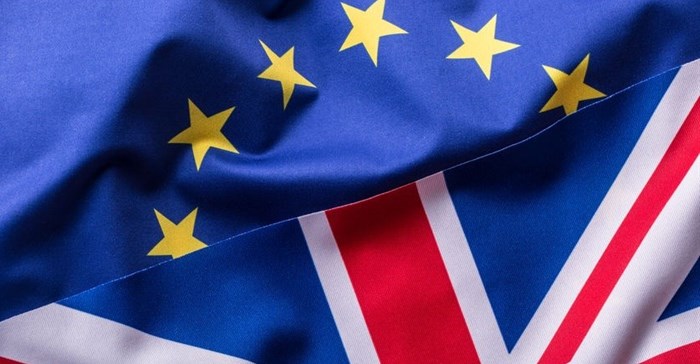
Related
Top stories






More news


ESG & Sustainability
Redisa calls on govt to fix South Africa’s “broken” waste management system



























Of course, the markets kicked off their usual pre-emptive reaction with the sterling in a downward spiral even before the final vote was counted, David Cameron is looking for a new job and social media is all twitter predicting Armageddon.
However, many economists are fairly unruffled about the economic outlook, with the general consensus being that there will be some short-term disruption, but the markets will smooth themselves out again.
Dr Adrian Saville, chief strategist at Citadel, says markets have weathered worse events, including 9/11, and it is only in the fullness of time that the real, if any, implications of Brexit will become obvious.
Markets have, however, certainly been volatile since Thursday. To rattle off some numbers quickly: the Nikkei is down 7,5%, Wall Street futures 4,5% and oil 5%. In the currency markets sterling has dropped 10%, the euro 4%, while the yen has gained 4.5% and the Swissie 2,5% on Friday.
“Our initial bias is that the ‘keep calm’ scenario will ultimately prevail. Expect the next week or two to see extreme volatility, negative headlines from the UK and political rumblings in Europe. But nothing will change and the markets will eventually calm down,” says John Cairns of RMB.
The rand has been no exception to other currencies, with loses against the dollar swinging from 5,5% to 8,5% on Friday. This is at the larger end of the ranges expected. EUR/ZAR is more subdued, up only 2%. GBP/ZAR has dropped 4%.
“The rand has been an underperformer, for no particular reason that we can think of. This allows some scope for recovery, but this will be swamped by the broader global moves,” Cairns says.
Director of investments at Old Mutual, Hywel George explains: “As an emerging market, South Africa is likely to be caught in the cross winds of this risk-off investment environment. I am confident, however, that within a context of extreme volatility, opportunities will arise and, as long as investors do not panic and stay the course.”
While Rafiq Taylor of Sanlam says: “Over the last few months, we discussed the possibility of a Brexit in many our investment committee meetings. This, along with many other risks still prevalent in markets, has informed our more cautious view. As such, we’ve looked to increase exposure to more defensive managers and strategies. The amount of volatility following the fallout again emphasizes the importance of having the flexibility to protect investors from these swings in asset prices and also to potentially capture opportunities where stocks have been oversold.”
Where Brexit is likely to have the most impact is in political upheaval. It will undoubtedly have given courage to other malcontents in the EU to think about leaving the organisation. And countries such as Scotland are already rattling their sabres for another referendum for independence.
“The exit of the UK from the EU may be the beginning of the end for the European Union. Right wing parties across the EU have been making it clear that they were dissatisfied with the rules and regulations imposed on them by Brussels,” says independent economist, Dawie Roodt. “Now that the UK has actually voted to leave, I expect several other EU member states to take the same route.”
Possibly nothing. Having decided to leave the EU, the UK now needs to negotiate its exit. This might well take the rest of the decade or more and nothing legally changes in the interim. The best case scenario then is that everyone keeps calm and carries on, and markets quickly stabilise and recover most of their lost ground,” says Cairns.
